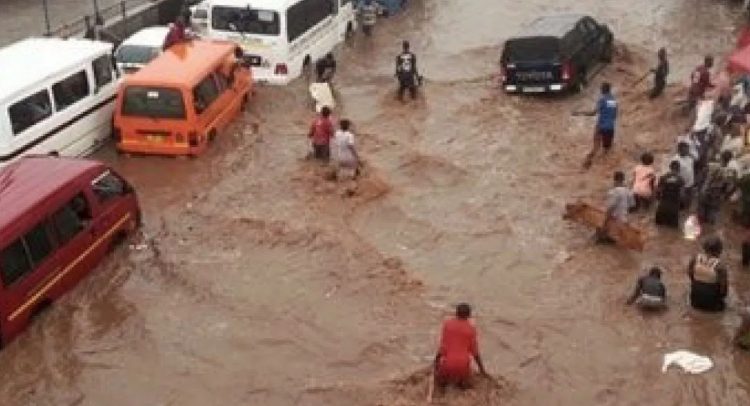Monday’s downpour in Accra proved us wrong when we thought this year would be bereft of the annual ritual of flooding.
The Accra Metropolitan Assembly (AMA) after the de-silting of the major drains in the city expected the floods not to come. The assembly had through its CEO claimed that the initial rains without floods attested to the good work done to obviate the annual challenge Accra faces during the season.
The downpour, which characteristically destroyed properties and even claimed lives, is a further evidence that there is still a lot of work to be done.
The de-silting exercise could not have stopped the floods from occurring considering the quantum of recklessness in development and our relationship with the environment.
We are anxious to see commencement of work to stem the annual flooding of the nation’s capital with the release of a whopping amount of money to address the phenomenon by government, the most remarkable response to the annual challenge yet. We pray that this year’s occurrence should be the last destructive flooding.
At the end of the downpour under review, the volume of plastic products in the streets, after they were ejected by the swollen gutters, says it all about the dangers presented by the non-biodegradable stuff.
At a time when the European Union (EU) has placed a total ban on plastic straws and other disposal stuff made from this, the subject has hardly made it to the public agenda lineup let alone the policy level.
Given that these products constitute a large percentage of garbage in our drainage system, coupled with the fact that they are non-biodegradable, banning them is the best option for us. China which used to import used plastic stuff from Europe has stopped the transaction perhaps compelling the EU to take the action it did.
Sometimes we do not conduct our affairs, policymakers and the public alike, as if we are a part of a global village. Our weather pattern is not detached from the global pattern that is why we must be concerned with the global warming phenomenon and the matters arising thereof.
We are apprehensive about the high probability of plastic production machinery finding their way into the country and others in our part of the world which have not thought about the need to ban plastic products since, after all, they would no longer be needed there.
Can we today hold a regatta on the Korle Lagoon as was done on Saturday, 26th November 1932? No, because the water body has been contaminated with so much filth including spent plastic products that such a recreational activity cannot be undertaken on it.
Beside the plastic product menace, the irresponsibility on the part of many urban dwellers is not waning. For how long can we live like this as a people? It is becoming worrisome and scary that even with the fallouts from the annual rains, we are not learning. Like vultures, we resolve to take measures to obviate future floods but no sooner are the rains over than we shelve the projects.
Do we still have structures on waterways? Do the relevant agencies have the muscle to take the necessary measures to change the status quo?
We recall the publicity given to the demolishing exercise along the railway line running through Circle and the Avenor. The action was undertaken in response to a major flooding of the nation’s capital. The structures are springing up again. What a country, what a people!


